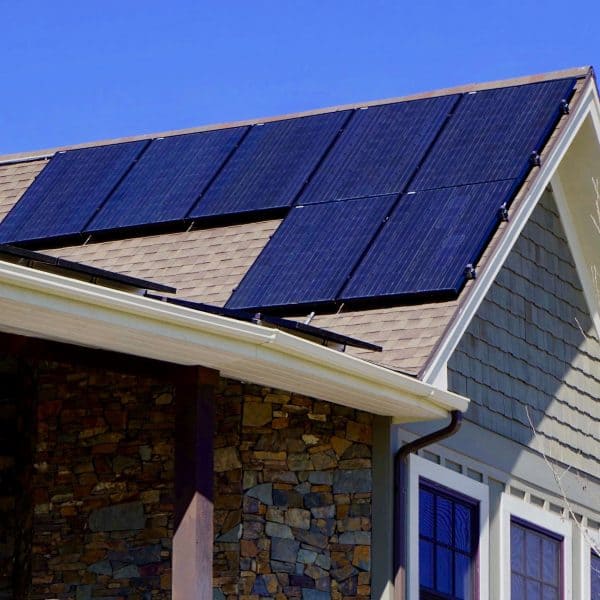Roof Solar Panels: Ensuring They’ll Work for Your Home

There are a lot of logistics that go into determining if your home is a good fit for solar panels. If you want to do some research on your own, you’ve come to the right spot.
Will My Roof Support the Weight of Solar Panels?
An understanding of solar loads will give you the tools to determine if your home is ready for solar panels. Or if it needs to undergo a re-roofing process to make rooftop solar a possibility.
Dead Load and Rooftop Solar Considerations
A roof is built to take on quite a bit of pressure without collapsing or losing shingles. Heavy winds or snow are common in many parts of the country, which underscores the need for sturdy roofs. The ability of a roof to shoulder weight is determined by its dead load and live load.
A dead load is the weight of the roof itself, plus any permanent structures installed on it (e.g. solar panels). The maximum dead load depends on the roofing material and could range from 15 lbs per square foot (psf) for asphalt, to more than twice as much for clay or concrete style tiles. When actuaries calculate home insurance rates, they figure in dead and live loads.
Live Load and Solar for Home Considerations
Roofs also have a live load to provide extra support for temporary weight on the roof. Live loads could involve anyone on the roof or heavy objects such as snowfall.
In areas with cold winters, a roof might be designed to shoulder a dead load of 20 psf, plus a live load of 20 psf. A sharp slope on a roof, however, could decrease the maximum live load to 15 psf.
A typical home can hold four feet of snow, which is equivalent to 20 psf, without collapsing. Your solar engineers will factor this into their assessments.
Average Size and Weight of Solar Panels
Relatively speaking, solar panels are quite lightweight. They are designed to sit on a roof for decades without causing damage or collapse.
The average solar panel measures about 65 inches by 39 inches and weighs around 35-45 lbs. If installed correctly each panel will minimize the dead load at any single point in the roof.
Other Roofing Factors to Consider When Thinking About Rooftop Solar
Of course, there are other factors that interested buyers should keep in mind before they arrange to have solar panels installed. A roof’s dead load and live load are determined by its construction and material, but also its condition.
A roof that has sustained water damage in the rafters, or has a roofing material that needs replacing, may require repair to be able to support any additional weight placed on it.
Buyers who are thinking about replacing their roof sometime in the next couple years may want to complete this task first, as roofing repair or upgrades are more complicated after solar panels have been installed. However, a roof that is well-built and maintained should be able to handle the weight of solar panels, with proper installation and care.



Send a Message
Oops! We could not locate your form.